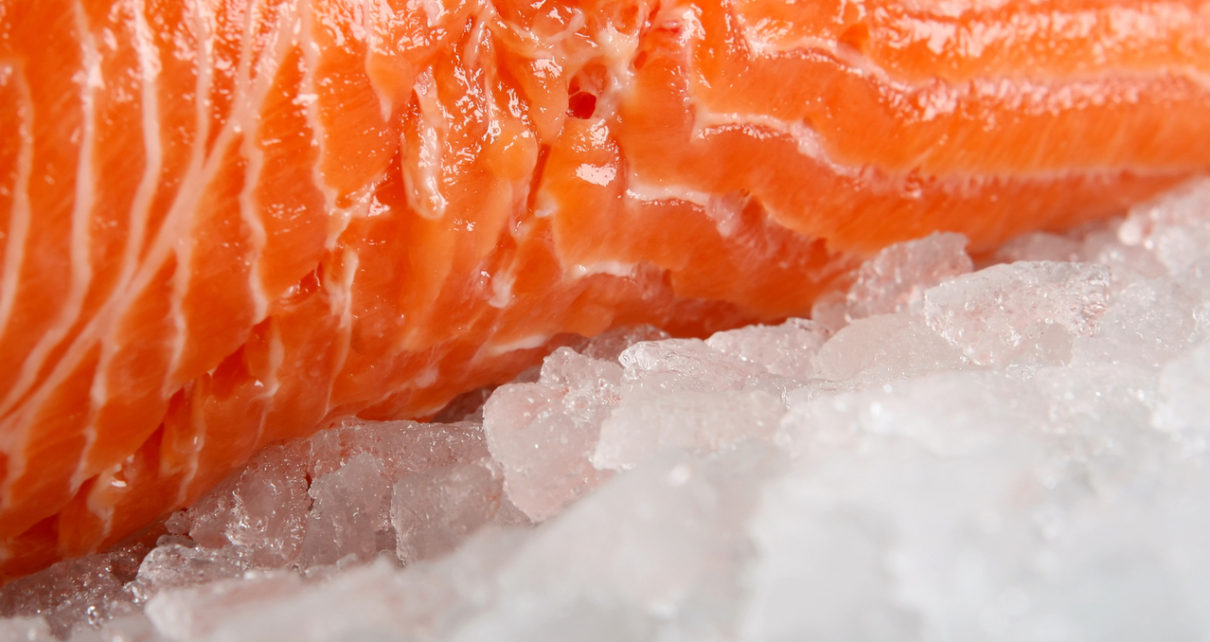As people and their pets both experience increased obesity rates, bioactive salmon peptides could provide a promising avenue for addressing this phenomenon across genera. This is detailed in Biomega Group’s latest whitepaper, which examines burgeoning research in this area. However, the Norway-based bioscience company flags that collaboration between academic and industrial producers will be crucial to ensuring the future success of peptides as a novel therapeutic and to making a vital contribution to the treatment or prevention of various diseases.
“Some of our customers have launched new nutraceuticals or food supplements with a focus on weight management or diabetes prevention. As the link between COVID-19 and obesity is explored and more scientific evidence is detailed, we see increasing interest in weight management and diabetes prevention in humans,” Marianne Warnaer, Global Sales Director at Biomega, tells NutritionInsight.
According to Biomega, marine peptides demonstrate a range of characteristics including antiviral, cardioprotective and appetite-suppressing activities. Commercially available varieties claim to address concerns from cognitive function and stress to blood glucose levels and obesity, but full human clinical studies remain limited.
“Salmon peptides and their potential role in weight management” is the second whitepaper in a series of Biomega releases explaining the scientific advantages salmon bioactive peptides could have on human and animal well-being. The company details that assessment of peptides’ bioregulatory role, together with their mechanisms of action, indicates that peptides can also be used in animal and human pharmaceuticals and nutraceuticals. These can exert a physiological effect on the body to deliver health and wellness benefits.
“Our whitepaper explores how salmon protein hydrolysates can help to manage weight and combat health conditions relating to obesity in humans and animals. Considering substantial scientific evidence and reference to several published studies, the document outlines how bioactive salmon peptides can theoretically reduce inflammation in visceral adipose tissue and significantly decrease body mass index,” details Liaset.
According to Innova Market Insights, weight loss is the primary motivator for two out of three consumers who say they have changed their eating habits within the past year. However, consumers are increasingly busy as they face juggling social lives with work and family, as addressed in the market researcher’s “The Right Bite,” which is one of the Top Trends for 2020. This means that many consumers struggling to find time to exercise and cook may be likely to embrace a supplement that augments their weight management efforts.
Biomega uses a food-grade enzyme extraction process utilizing fresh salmon off-cuts as raw material.
Weighing up the evidence
Biomega details a range of evidence examining the link between salmon peptides and fighting obesity. For example, 2011 pre-clinical studies indicated that salmon hydrolyzed proteins may prevent obesity. Addressing bile acids (BA) as powerful regulators of the metabolism, the study indicated that the plasma BA concentration in rats was elevated by exchanging the dietary protein source from milk casein to salmon protein hydrolysate (SPH). Notably, the rats that had been treated with SPH were then resistant to diet-induced obesity.
Meanwhile, a 2015 investigation showed that intake of salmon hydrolyzed proteins reduced body mass, relative to intake of the milk protein whey, in overweight people. Interestingly, up to a quarter of Biomega salmon peptides are collagen, which may in itself have a weight management effect.
Another proposal as to why salmon peptides fight obesity is related to the association between elevated BA concentration and the induction of genes involved in energy metabolism, as well as the loss of energy in the form of heat in brown adipose tissue, which breaks down glucose and fat molecules.
Also active in this space is Hofseth Biocare (HBC), which produces ProGO SPH. A study comparing this ingredient to whey protein isolate (WPI) found that 19 of the 23 subjects who supplemented with ProGo showed a significant BMI decrease after 42 days, with an average decrease of 5.9 percent. By contrast, subjects in the WPI group gained a small amount of weight.
At the time, James Berger, Head of Investor Relations & Strategy at HBC told NutritionInsight: “It almost sounds too good to be true – that people can lose 6 percent of their body weight without even needing to exercise. It might sound like a crazy thing to say, but it is true.”
A gentle extraction process
Biomega uses a proprietary continuous non-GMO food-grade enzyme extraction process utilizing fresh salmon off-cuts as raw material. These are a fresh by-product of the salmon processing industry. Proteins are gently hydrolyzed into bioactive peptides while preserving the functional and nutritional values of the salmon peptides.
The peptides are then further concentrated and isolated by molecular weight through a membrane filtration process, to separate them from unhydrolyzed proteins. This ensures the purest fractions of soluble proteins are collected, along with residual vitamins and minerals for use in a wide variety of pet food, supplement and human nutrition applications offering hypo-allergenicity for formulators.
“It’s critical that we use this science-backed evidence to positively contribute to the wellbeing of humans and animals,” adds Warnaer. “Further clinical studies will be carried out with focus on specific target groups and health benefits. In terms of future plans, we have geographic expansion and growth of the company in premium pet- and human-food applications all in our strategic plans. This is all in line with our brand positioning of value vitality, value today, value tomorrow.”
Humans and pets face obesity crisis
Approximately 21 percent of canines are classed as overweight six months after birth.
According to the World Health Organization, worldwide human obesity has nearly tripled since 1975, with more than 1.9 billion adults classed as overweight and 650 million of these being obese. Biomega details that this stems from a globally increased intake of energy-dense foods that are high in fat and sugars and a rise in physical inactivity due to the increasingly sedentary nature of many forms of work, changing modes of transportation and increasing urbanization.
Pet obesity is also on the rise, with the US Association for Pet Obesity Prevention noting that up to 59 percent of dogs and cats are overweight. Biomega also points to recent studies suggesting that approximately 21 percent of canines are classed as overweight six months after birth. Like humans, this relates to an energy imbalance, with over-feeding being paired with a lack of expended calories.
“Unfortunately, pet obesity has a direct correlation with human obesity. What has been observed in several studies is that pets are being overfed – relative to their size or breed – and not exercised enough. The modern sedentary lifestyle, relative to that of fifty years ago where people walked or cycled more in daily activities, is affecting our pets as much as ourselves,” says Warnaer.
Obesity places these animals at risk of metabolic derangements and significant functional impairment – most notably respiratory, cardiovascular and renal function. This also presents a significant financial burden for pet owners.
Also in the animal nutrition space, Birdnip recently released dog supplements packed with human-grade adaptogens, nootropics and plant-based ingredients called “The Full Stack,” which aim to support canine mental health and optimal physical performance. Meanwhile, Pet Wellness Direct offers a line of pet-friendly antioxidant mushroom supplements to help prevent cancer.
Source: Nutrition Insight










